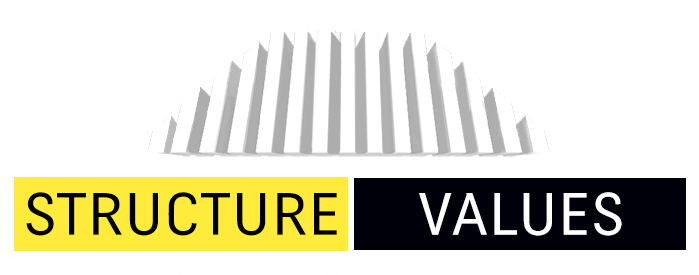
In the construction industry, the role of estimators is paramount. These professionals, operating under various titles such as construction estimator, cost analyst, chief estimator, or cost consultant, play a crucial role in determining the accurate cost estimates for construction projects. Their responsibilities span across different industries, encompassing new product development in manufacturing and project management in various fields. Given their significance, the search for talented estimators becomes imperative for the success of any construction firm, especially during times of labor shortage.
Why Find A Talented Construction Estimator?
Initiating the process, obtaining an accurate cost estimate is pivotal in the bidding process. The primary reason for seeking a construction estimator is the necessity to secure estimators during labor shortages. The cost involved in a construction project holds utmost importance for various stakeholders, regardless of the scale of the construction firm – be it a small-scale bidding form, a multi-million-dollar project, or a freelance tradesman pursuing a small job. Clients and contractors alike seek a clear understanding of the overall project cost before commencement, ensuring that services needed during construction are efficiently provided.
The scale of a project significantly influences the focus on cost. While an experienced roofer can estimate the cost of materials and labor for a small individual job, complex projects necessitate the inclusion of labor costs. Hence, hiring a skilled commercial estimator becomes imperative for accurate estimations, serving as the key to kickstarting a project with confidence.
It’s crucial to note that aiming for a low estimate to secure a contract may lead to detrimental consequences. A notable example is the collapse of Carillion, one of the largest construction companies in the UK. Reports suggested that aggressive low bidding, aiming to secure more contracts, played a substantial role in the company’s downfall. An accurate estimate is not only instrumental in winning a bid but is also essential for executing the project on time and within budget.
The estimation of costs and materials also plays a vital role in the take-off process. Teams rely on accurate estimates to order the right materials in the right quantities and secure necessary subcontractors, ensuring the project progresses smoothly until completion.
Role Of The Construction Cost Estimator

Residential building estimators engage in collecting and analyzing relevant data essential for providing a complete costing. This includes estimating the time, materials, and labor resources required for constructing a building or completing a project. The details provided by estimators empower managers to formulate competitive and realistic bids. Handling this delicate balance requires properly trained professionals who can ensure the work is done right.
In their role, estimators identify and analyze factors influencing costs, such as material and equipment requirements, production time, and labor. Additionally, construction cost estimators collaborate with architects and designers, working in diverse areas with some specializing in particular vocations like electrical and wiring circuits.
Beyond assessing current labor and material costs, construction estimators must account for variable factors, including allowances for poor weather conditions, work delays, wasted materials, and shipping delays.
Meeting Demand For Estimators During The Labor Shortage
As per the Bureau of Labor Statistics (BLS), jobs for cost estimators within the construction industry are projected to grow by 11% between 2016 and 2026 nationwide. This growth, faster than the average for all occupations, highlights the industry’s need for accurate cost estimates to operate cost-effectively. Projections indicate approximately 23,000 new jobs will be available in the industry within this timeframe.
The industries with the highest levels of employment for estimators include building equipment contractors, non-residential building construction, foundation, structure, building exterior contractors, building finishing contractors, and residential building construction.
Employment levels, wages, and employment density vary by state. For instance, the highest level of employment for this role was 27,550, with Virginia having the highest concentration at 2.39 per thousand jobs in the industry. The District of Columbia reported the highest wages, approximately $89,570.
How To Find Talented Construction Estimators?
The quest for talented construction estimators necessitates identifying individuals possessing specific skills and knowledge. Key skills include:
In the dynamic and competitive landscape of the construction industry, the pursuit of skilled and talented construction estimators demands a strategic and meticulous approach. These professionals, crucial to the success of construction projects, play a pivotal role in providing accurate cost estimates, influencing bidding processes, and ensuring projects are executed efficiently within stipulated budgets. Here’s an in-depth exploration of the multifaceted process of finding and securing talented construction estimators:
1. Identifying Skill Sets and Knowledge:

Historical Data Expertise: A proficient estimator should possess hands-on experience in collecting historical data to estimate costs accurately. This involves delving into past projects, analyzing cost structures, and understanding how various factors contribute to project expenses.
Consultation and Communication Skills: Effectively navigating the complexities of construction projects requires strong consultation and communication skills. Estimators need to engage with clients, collaborate with different departments, communicate with construction foremen, and liaise with vendors to troubleshoot problems and ensure a comprehensive understanding of project requirements.
Estimation Preparation Proficiency: Beyond number-crunching, estimators need to be adept at preparing estimates that serve as critical tools for management in scheduling work, planning, and organizing project timelines. This involves a holistic understanding of project scopes and requirements.
Analytical Acumen: The ability to analyze technical documentation, such as blueprints, is a core competency. Estimators must scrutinize intricate details, interpret architectural designs, and translate them into comprehensive estimates covering time, labor, cost, and material considerations.
Collaborative Approach: Working seamlessly with various stakeholders, including engineers, architects, owners, contractors, and vendors, is vital. Estimators should be capable of adapting to different roles and effectively collaborating to make adjustments to estimates based on evolving project needs.
Technological Proficiency: The modern construction landscape relies heavily on technology. Estimators should showcase proficiency in using estimating software, accounting tools, and project management platforms. Familiarity with industry-specific software like Computer-Aided Design (CAD) and Building Information Modeling (BIM) enhances their effectiveness.
Mathematical Competency: Strong mathematical skills are non-negotiable. Estimators must handle complex calculations, quantify material and labor requirements, and ensure precision in cost estimations.
Effective Communication: Presenting complex reports in a concise and understandable manner is essential. Estimators should possess strong communication skills to convey intricate details, findings, and recommendations to diverse audiences.
2. Scope-Driven Hiring Process:

Tailored Experience: The hiring process should align with the specific scope of the construction project or ongoing role. Estimators with experience relevant to the project’s requirements bring a nuanced understanding of challenges and opportunities.
Competitive Remuneration: Recognizing the scarcity of talented individuals in this role, offering competitive pay is paramount. Remuneration should consider factors such as skills, experience, the nature of the project, and ongoing job requirements. It serves as a crucial incentive for attracting and retaining top-tier estimators.
3. Educational and Professional Background:

Academic Qualifications: Construction cost estimators typically hold a bachelor’s degree in industry-related fields such as construction management or engineering. Academic qualifications lay the foundation, providing theoretical knowledge and industry insights.
On-the-Job Training: Practical, on-the-job training is a common pathway for estimators to gain hands-on experience. Exposure to real-world projects, software applications, and industry-specific practices enhances their proficiency.
Specialized Software Proficiency: Estimators should be well-versed in using specialized software relevant to the construction industry. This includes proficiency in Computer-Aided Design (CAD), Building Information Modeling (BIM), spreadsheets, databases, and dedicated cost-estimating software.
4. Key Qualities for Success:

Analytical Skills: Strong analytical capabilities are foundational. Estimators must dissect complex project requirements, assess various cost factors, and formulate comprehensive estimates.
Attention to Detail: Precision is paramount. Estimators need an acute eye for detail to capture nuances in project documentation, identify potential challenges, and present accurate estimations.
Methodical Approach: A methodical working approach ensures systematic estimation processes. Estimators should follow structured methodologies, adhere to industry best practices, and maintain consistency in their approach.
Mathematical Prowess: Proficiency in mathematics extends beyond basic calculations. Estimators should be comfortable with advanced mathematical concepts to ensure the accuracy of cost estimations.
Time-Management Skills: Meeting deadlines is intrinsic to construction projects. Estimators need effective time-management skills to deliver estimates promptly and contribute to seamless project planning.
Communication Proficiency: Strong communication skills are essential for conveying findings, reports, and recommendations. Estimators should articulate complex information in a manner understandable to diverse stakeholders.
5. Proactive Strategies During Labor Shortages:

Recruitment Agencies: Given the challenges posed by labor shortages, engaging with recruitment agencies can be a proactive strategy. These agencies, equipped with industry knowledge, understand specific requirements and assist in identifying suitable candidates for construction firms.
Competitive Hiring Practices: Acknowledging the demand for skilled estimators, construction firms should adopt competitive hiring practices. This involves not only offering attractive remuneration but also showcasing the unique opportunities and growth potential within
Conclusion
The search for a talented construction estimator in the industry is undoubtedly challenging. Labor shortages add complexity to the hiring process. For those lacking the time to scour for estimators, recruiting agencies offer valuable assistance. These agencies understand specific requirements and aid in finding the right candidate as per job responsibilities.
For those still in search of accurate estimates for construction projects, whether commercial or residential, professional cost estimating companies provide reliable services. These experts utilize the latest software to deliver precise estimates on time, enabling informed decisions about project commencement.
In conclusion, the role of construction estimators is indispensable in the dynamic construction industry. Finding and retaining talented individuals, especially during labor shortages, is crucial for successful project execution. Through proactive hiring strategies, competitive remuneration, and leveraging the expertise of professional estimating services, construction firms can navigate challenges and embark on projects with confidence.”

